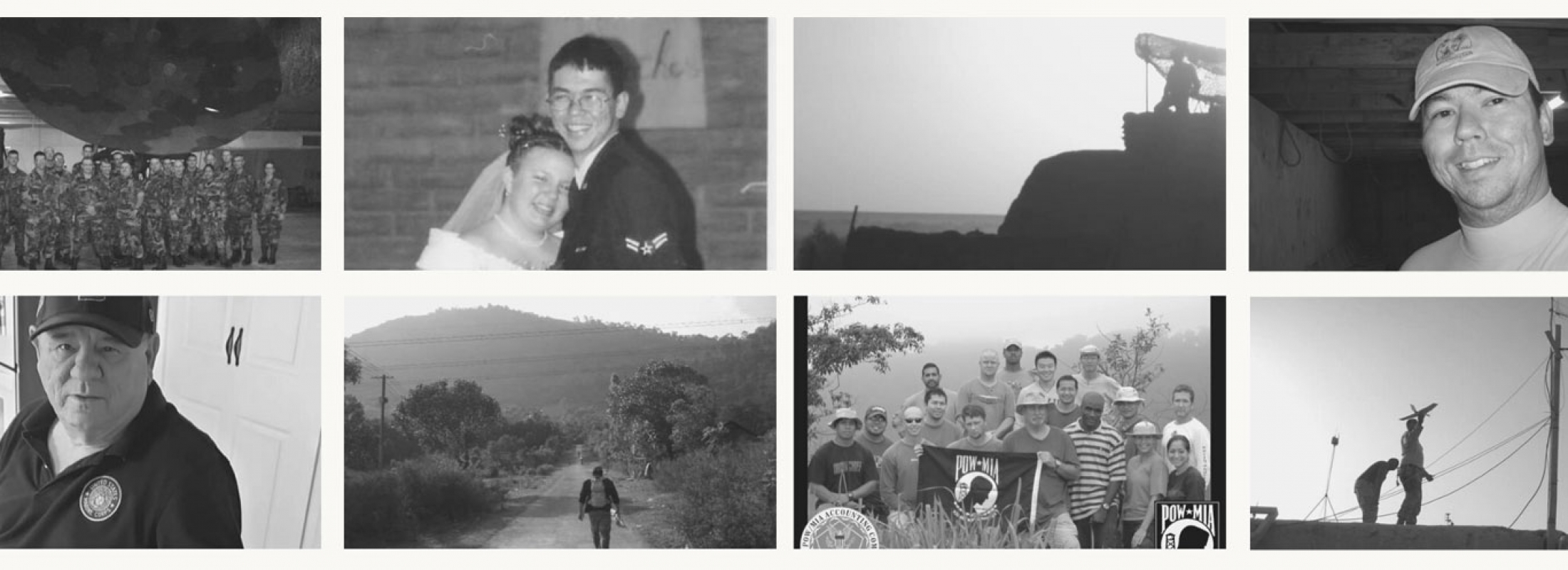Gregory Doss is a United States Air Force Veteran who served from June 2001 to June 2007 and separated honorably as a Staff Sergeant before continuing his service in the Global War on Terrorism as a contractor with the United States Marine Corps.
Gregory’s father is a Vietnam Veteran who served in the U.S. Marine Corps. His uncle served in the U.S. Army. His paternal grandfather was drafted into the U.S. Navy during World War II and served in both theaters. Gregory’s mother, who is of Japanese ancestry, had an uncle who served as a First Sergeant during World War II and three brothers who served in their own time.
Climb a bit further out onto the branches of Gregory’s family tree, and you’ll find a legacy that includes service in almost every conflict in American history dating back to the French and Indian War. It is a way of life and of being that Gregory is proud of.
When Gregory decided as a high school student that he would join the Air Force, there was a sense that he was joining the family business. Already, he had a deep appreciation for military service and an even deeper understanding of what it might mean for him.
Gregory had just finished Air Force basic training and received his Airman’s coin when he became more attuned still to the serious — and even sacrificial — side of service. A dissatisfied former EOD tech school trainee sent a package bomb to Janet McWilliams, who was serving as a first sergeant then. She lost part of her arm. The entire base went on lock down. And Gregory and his classmates were suddenly responsible for guarding their squadrons. It was then, Gregory says, that he understood the full weight of his enlistment oath: “to defend the Constitution of the United States against all enemies, foreign and domestic.”
That was Gregory’s first brush with terrorism, but it couldn’t have prepared him for what would come just two months later.
On September 11, 2001, Gregory was sitting in the chow hall. He was still at his first tech school. As he watched the coverage of the terrorist attacks, and saw the Twin Towers fall, he says a switch flipped in his head. “I still remember vividly to this day thinking to myself ‘give me my weapons and let’s go.’ I was ready to do anything to visit justice upon those responsible. In that moment, I understood that it was my generation’s turn to defend this nation.”
During his last year service, Gregory worked to help stand up a squadron to provide armed Intelligence, Surveillance, and Reconnaissance (ISR) support for Special Operations missions. The work mattered to him, Gregory says, because he knew that the mission was one of the few at the tip of the spear. The squadron he was working with also has a storied heritage that includes one of the few Air Force Enlisted Medal of Honor recipients. Combined efforts of the squadron members led evil-doers to be brought to justice and led to honors for their support during the GWOT generally and OIF and OEF more specifically.
One of the most powerful experiences of Gregory’s career, though, was a Temporary Duty Assignment to Vietnam with the Joint POW/MIA Accounting Command (now the Defense POW/MIA Accounting Agency). The experience, he says, helped him understand the history of those on both sides of the conflict. Spending time with Vietnamese counterparts offered much-needed context. Gregory’s father was Wounded in Action while serving as a Marine in Vietnam, and the mission held special purpose for Gregory.
During the Vietnam War, Kham Duc was a Special Operations Air Base protected by Artillery and Air Defense on observation posts on mountain tops. They were tasked with recovering 3 personnel lost on observation post 1 during the Tet Offensive. They could still see bomb craters on OP 1 from the Linebacker bombing campaigns. After his return from Vietnam, Gregory learned that the team had recovered enough evidence and personal effects for the recovery effort to be deemed successful. “That was closure for three families that didn’t get the chance for final closure at the time of KIA notification,” he says.
Gregory backs the Global War on Terrorism Memorial Foundation’s mission, because he believes monuments play an important part in the ongoing healing process.
“It is part of human nature to have a memorial, dating back to early religions and further,” Gregory says. “Memorials symbolize tragedy and rebirth. With rebirth comes joy. A memorial can prevent history from repeating itself. It can teach us lessons that change the present and the future.”

